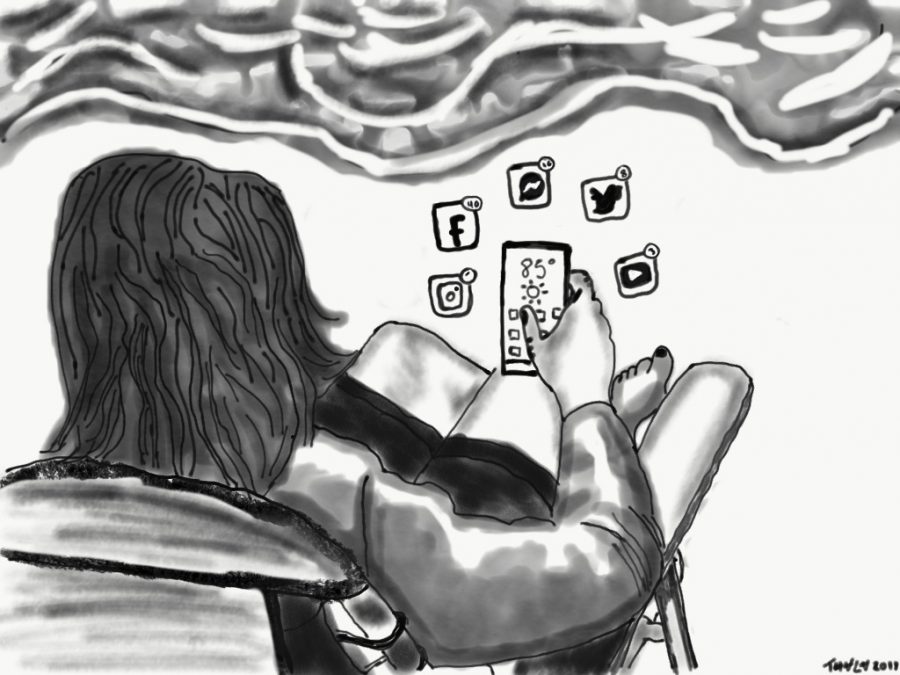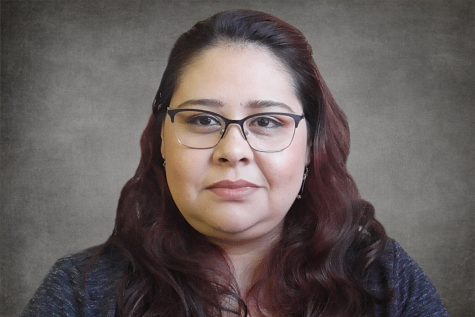Battle to quit social media induces anxiety
Sep 11, 2018
Few weeks ago, I found myself updating my Facebook status in the middle of an anxiety attack. Somehow, in the midst of deep breathing and heart palpitations, I fought the need to inform my followers what I was going through.
The episode of emotional turmoil was interrupted by the 15 other notifications on my phone that I thought required my immediate attention.
Once I realized I was answering messages and liking pictures when my body was screaming for help, I decided to do the unthinkable — cut all ties with social media.
Although social media has been used to connect people from all around the world for years, I realize I’m not alone. A vast number of users are deciding to be done with it for good.
Ben, a 24-year-old millennial who begin using Facebook when he was 12, said, “I deleted my account because I got tired of fake people who would cheer you up when you are acting stupid but will hate on you when you are having a hard time.”
Multiple studies have shown that social media users experience bouts of depression and self-doubt due to social comparison. It is a measurable phenomenon that surfaces when social media users are overexposed to the apparent success of their peers.
Margaret Duffy, a professor at the University of Missouri School of Journalism, said, “Facebook can be a fun and healthy activity if users take advantage of the site to stay connected with family and old friends. However, if Facebook is used to see how well an acquaintance is doing financially or how happy an old friend is in his relationship, it can cause envy among users.”
Even though quitting social media requires just one click, the aftermath is more complicated. Most people will experience noticeable withdrawal symptoms during the first few days of cutting the cord.
Social media use increases the brain’s production of dopamine, which is the same way drug consumption affects the mind.
That’s why quitting “cold turkey” will result in withdrawal symptoms.
However, once people are not spending as much time using electronics, cord-cutters realize they can use that extra time to be creative. After vacating social platforms, among other life improvements, people report sleeping better. It’s easier to get the recommended hours of sleep when there are no notifications popping up throughout the night.
More importantly, severing cyberoptic ties offers people more time to spend with family and gives relationships the time required to grow and improve.
While social media have a negative effect on the well being of some people, it is undeniably true that they are also beneficial in many ways. Productive use opens gateways for people to become active members of society.
Some social media platforms such Facebook, YouTube, and Instagram provide their users the chance to upload the bulk of the platform’s creative content. It also gives them the opportunity to start online businesses. Social platforms make it easy to connect with possible clients and gain a financial stability in cases where life situations don’t allow people to work outside of the home.
Weeks after I severed my electronic umbilical cord, I found out it is almost impossible to be disconnected. So I reconnected, this time creating a social media presence where my focus is only family, work and school.
In order for me to function without social media, I would have to become someone else — and that’s not something I’m prepared to do.



